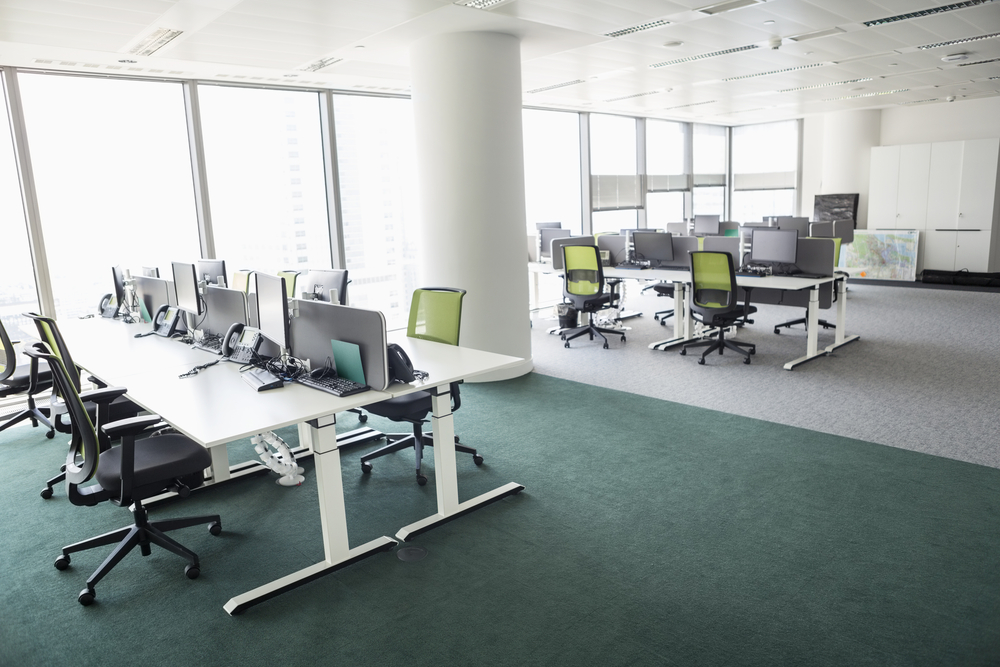What should real estate professionals and businesses be demanding from their next office setup?
Real estate professionals and CEOs are using a more diversified selection of office solutions than ever before. There are an ever increasing number of options. So what are the best choices? What factors determine the right solution for each individual company or independent professional?
1. Efficient Commute: The commute and its impact on everything else shouldn’t be underestimated. How close will your new real estate office be to where you live? Travel costs are a big issue. If you’ll be riding a bike that is one thing, but anything farther than biking distance needs extra consideration. If you have a car and need to drive it to work, you need a place to keep it, money to pay for gas and regular maintenance. The cost can be enormous, and that doesn’t count a number of other items. Don’t forget that while gas prices may be cheap now, they will likely keep going up. What about travel time? If you are riding the train, taking an Uber or Lyft ride, or have a Maybach, you can probably get work done during the commute. If not, you might be wasting hours. Maybe even half your working day. Would it be cheaper to move closer to your office, or move your office closer to home?
2. Business Address: As a real estate professional, an address can be everything. Never, never, never, use your personal address for business. It’s just too risky, and it may often not be allowed for certain business and licensing purposes. Working at home is perfectly acceptable. For many, it might even be the best choice. But that doesn’t mean you should use your home address for business. Having a prestigious and reputable address can go a long way too. So if working from home, find an alternative solution. This could be a mailing place that offers physical addresses for receiving mail. It could be a registered agent address that helps with incorporating, or it could be a co-working space. One thing to keep in mind here is that as this practice has become more common, consumers have become savvier too. Does your address really look legit? Could it sound too good? Does it match with your brand and other contact info? What happens if someone just decides to stop by your office because they happen to be in town?
3. Green: Going green and being eco-friendly is becoming more important. This remains true, even if you don’t care about the environment or believe in global warming. Strategic partners may be limited to working with green real estate companies. Many leading global companies are reporting that going green is not only creating savings, but is actually boosting their business. There are so many ways to go greener. This can be woven in everywhere from your commute, to building materials and design, to how much you print (and on what), and how you run your business.
4. Healthy: Don’t overlook the importance of your real estate office being healthy. This isn’t just important for keeping your employees in their seats and at their best, but for long term health too. If you wind up with massive medical bills, or out of action, that means both a simultaneous loss of income and increase in expenses. This can apply to air quality, water quality, types of snacks available, the building materials and land you are sitting on, whether you are sitting or at a standing desk, and more.
5. Productive: What will this office do for your productivity? Will it boost or decrease your productivity? For some real estate professionals, working at home adds more hours to the day. For others working at home is a huge productivity killer. Office set up, recreational area setup, lighting, noise, and internet connectivity can all be factors impacting productiveness.
6. Sustainable: There are some beautiful offices out there that check all the boxes above. Some of them cost way more than real estate pros and companies should be paying – at least for the stage at which they are in today. Don’t sign up for more than what is sustainable with your current finances. The last thing you need is more dead weight. Remember that what you don’t burn in rent you can be investing in properties and in more real estate marketing. Use those profits to buy your own office building. Maybe even a building in which other tenants are paying you rent.
7. Maximizing Your Dollar: Some office spaces are just a drain on finances. Others may pay for themselves. Others could dramatically increase revenues. Do the math. Figure out which will deliver the best ROI.






